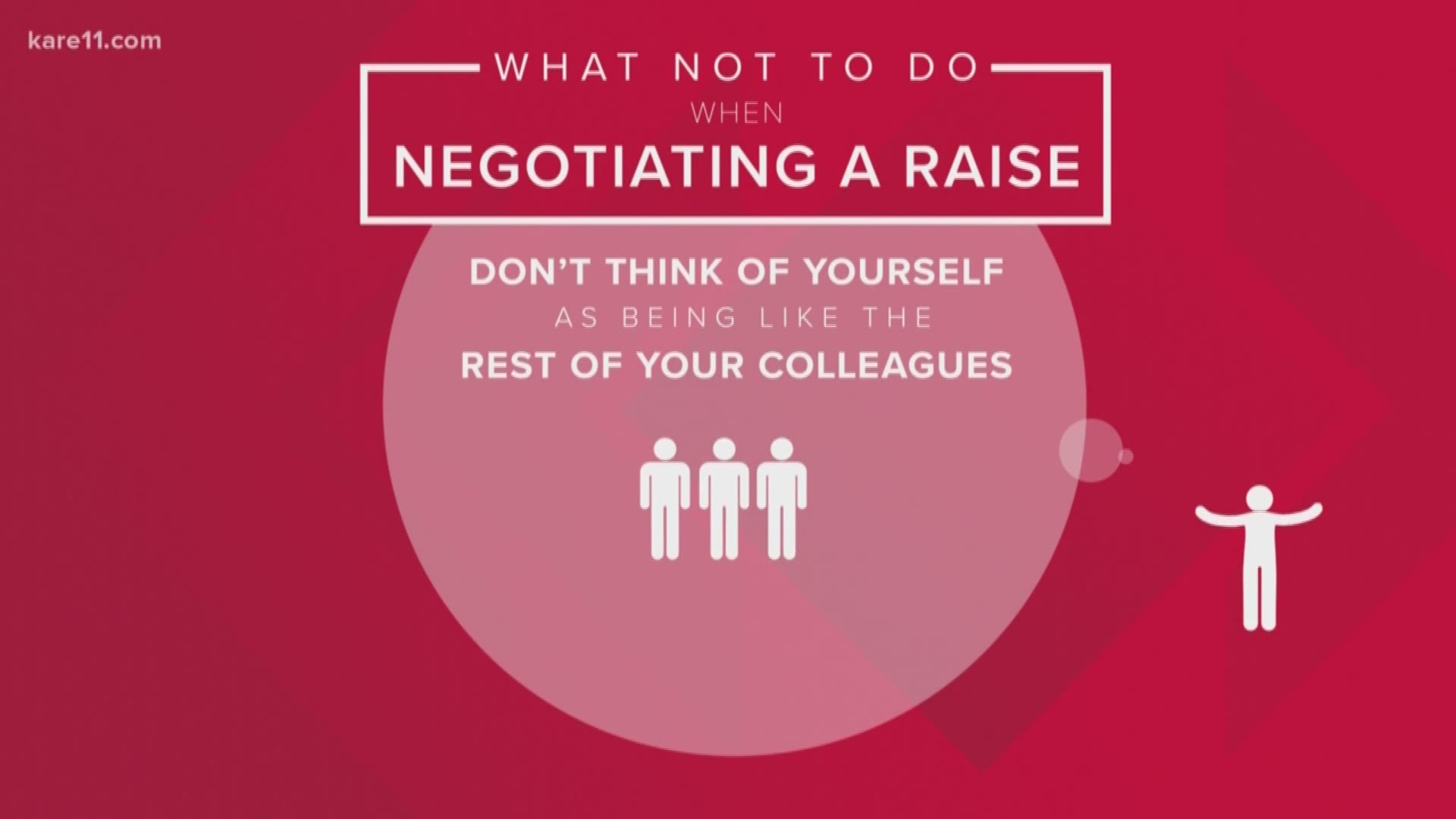MINNESOTA, USA — Asking for a raise can be daunting. Negotiating that raise comes easier for some of us than others.
KARE 11 Sunrise got to thinking about this topic after reading a recent article in Refinery29 where a Minneapolis woman says she got a $12,000 raise.
Negotiating with your boss can get awkward quickly, especially if you don't know how to have the conversation. So, we spoke with Mike Porter, he's a Professor of Marketing at University of St. Thomas's Opus College of Business. He broke down the things you should and should not do to when preparing and having that conversation.
"It's not just human resources that makes that call. If your boss wants you to get a raise and can't live without you they'll find the money," said Porter.
DO's
1. Know your worth. Porter says to research your salary online, research your company and its business plan. Talk with other people in your industry outside of your company. Ask yourself, "What is my value to the organization?"
2. Get to know people outside of your department. Join committees and connect with influencers. Porter says they could help you down the road in getting a pay bump.
3. Look at what else you're doing for the company besides your job.
"If the market says you should be getting more money and the organization has the money and they're not going to give it to you then you should be looking," said Porter.
DON'Ts
1. Don't threaten to leave your job unless you're ready. If you walk into your boss's office and demand a raise while threatening to leave, Porter says, that's not a negotiation.
"You should have your box packed if you're going to do that," he said.
2. Don't think of yourself as being like the rest of your colleagues. Differentiate yourself, recognize what you're doing differently and bring that to the conversation.
3. Don't wait for your boss to come to you about a raise. At the very least ask, and that may make your decision easier about your future at the company.
"You can do the same job as the person next to you, but if you have different visibility in the organization and you're doing other things for the organization at helping it be successful those are things of value but you're not necessarily being paid for and then when you negotiate you say 'Well, you know there are these other things I'm doing. Those have value to the organization. I'd just like to be compensated for those,'" said Porter.
More from KARE 11:


